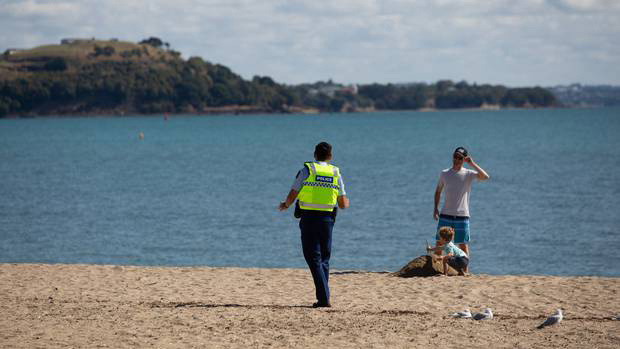These are the seven new lockdown rules that all Kiwis need to follow

Photo / NZH, Sylvie Whinray
A new health notice has been issued, leaving no doubt about what Kiwis can and cannot do in lockdown - as top officials are today expected to announce that New Zealand has surpassed 1000 confirmed and probable cases of Covid-19.
But there are encouraging signs for New Zealand, a nation that is now into its 12th day of lockdown, with at least three more weeks to go.
"It may well be [Covid-19] is peaking now because we're seeing it flattening off," Director-General of Health Ashely Bloomfield told reporters.
"We're increasingly confident these lockdown measures are working," Bloomfield said.
And under the rules of a new Health Notice announced this weekend, there is now no doubt - fishing, swimming, surfing, hunting and tramping are banned.
Kiwis had previously been advised not to take part in these activities during the Covid-19 lockdown but the ban was made official in fresh laws released on the Government's Covid-19 website.
The new Health Notice sets out:
• Everyone in New Zealand is to be isolated or quarantined at their current place of residence except as permitted for essential personal movement;
• Exercise is to be done in an outdoor place that can be readily accessed from home and two-metre physical distancing must be maintained;
• Recreation and exercise does not involve swimming, water-based activities (for example, surfing or boating), hunting, tramping, or other activities of a kind that expose participants to danger or may require search and rescue services;
• A child can leave the residence of one joint caregiver to visit or stay at the residence of another joint caregiver (and visit or stay at that residence) if there is a shared bubble arrangement;
• A person can leave their residence to visit or stay at another residence (and visit or stay at that residence) under a shared bubble arrangement if:
• One person lives alone in one, or both, of those residences; or
• Everyone in one of those residences is a vulnerable person.
Police Commissioner Andrew Coster welcomed the guidance and said police's primary goal was to ensure people understood the importance of staying home.
"The vast majority of New Zealanders have a high level of awareness of what they can and can't do under the Alert Level 4 restrictions, and by and large people are doing a tremendous job," he said.
"We want people to stay safe, but if a small number of people persist in deliberately flouting the restrictions, police will have the discretion to warn or, if necessary, to arrest.
"The Health Notice makes it clear what types of outdoor exercise and recreation people shouldn't do.
"Outside of that, we are asking people to stay local, apply common sense and not do anything that could risk exposure to injury or require search and rescue services."
Coster said the public should not notice any "significant change to policing as we continue to prioritise high-visibility reassurance to the community, and a continued focus on day-to-day police work".
"I have recently set a clear expectation of our staff on how we police in the current environment. We have updated our operational guidelines to staff, to help them police with confidence and certainty," he said.
Bloomfield is scheduled to brief Cabinet sometime within the next week about the factors which would be required to move the country, or at least some parts of it, out of level 4.

For more information visit covid19.govt.nz
This article was originally posted by NZ Herald and reproduced here with permission.

